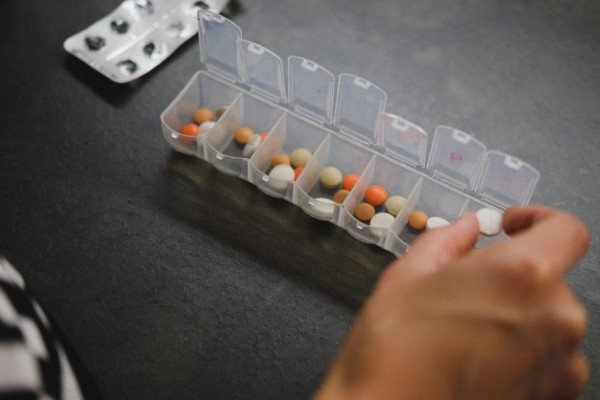Taking Beta-Blockers for Women With Hypertension May Lead to Increased Risk of Heart Failure

Women with hypertension and are taking beta-blockers have an almost five-percent higher risk for heart ailment even if they don't have a history of cardiovascular disease.
Women with hypertension and are taking beta-blockers have an almost five-percent higher risk for heart ailment even if they don't have a history of cardiovascular disease.
Their risk is higher than men when, according to the journal, the American Heart Association, they went to the hospital to report cases of acute coronary syndrome.
Beta-blockers are drugs that lower high blood pressure. They are available through prescription and not over the counter, for adults suffering hypertension, the primary cause of CVD.
In a study, researchers evaluated the effects of beta-blockers on individuals with hypertension. Still, they didn't have a previous background of CVD after they reported their condition of "acute coronary syndrome" at a hospital.
Following the occurrence of heart failure was documented to identify whether or not medication led to different results according to "biological differences."
ALSO READ: Researchers Find Adverse Effects of COVID-19 Outside the Lungs
Previous Studies Made
Previous studies on the impacts of the said drugs included most of the participants comprising men. Thus, researchers sought to evaluate how gender plays a vital role in patient results. This was according to cardiology professor Raffaele Bugiardini, M.D. from the University of Bologna.
Bugiardini, also the study's lead author, added, "Women are historically underrepresented" in the majority of clinical research specifically on hypertension.
Relatively, it is essential to include in future studies, the cardiology professor explained, an equal separation or division of male and female patients who could present enlightenment on discrepancies and actionable treatments.
Also, the research assessed information that came from the archives of the International Survey of Acute Coronary Syndromes or ISACS, the EMMACE-3X, and ISACS-TC clinical registries between 2010 and 2018.
Specifically, the research contained data from more than 13,700 adult individuals in 12 European nations who suffered from hypertension and did not have any prior background of CVD.
In the research, patients were categorized by gender and split in two: "those who were taking beta-blockers, and those who weren't."
DON'T MISS THIS: Eating Too Much Wasabi Linked to 'Broken-Heart Syndrome': Here Are Some Facts Regarding the Rare Condition
Research Finding
Study authors found that among the respondents who were taking blockers, women had a higher rate of 4.6 percent in heart failure than men when reporting with the acute coronary syndrome to the hospital.
Additionally, deaths of men and women who had heart failure were estimated seven times that of individuals who had an acute myocardial infarction and did not have any complications related to heart failure.
Also, according to Bugiardini, what they discovered "presents a solid occurrence for re-evaluation" of the use of beta block therapy for women with hypertension.
In addition, women without a history of CVD and just hypertension, the researchers believed, were extremely crucial for their blood pressure regulated through everyday diet and workout.
Since the said research was observational, researchers also highlighted some limitations saying that outcomes may have some discrepancies, and added information is also needed for validation.
Nevertheless, a randomized beta-blocker treatment test in people who have hypertension reportedly, may not be officially accepted as it would be devised to confirm danger, instead of benefit.
Lastly, the study did not include any data for the period or length of time respondents used a past therapy or "dosing of beta-blockers."
IN CASE YOU MISSED THIS: Deficiencies in Vitamins D and E Could Contribute to Higher Risk of COVID-19, Study Suggests
Jul 14, 2020 10:02 AM EDT





